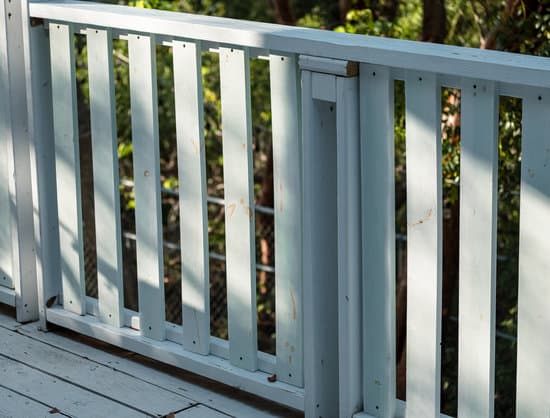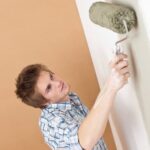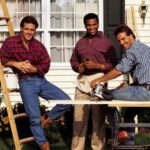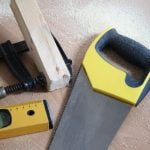Mobile home air conditioning (AC) is essential for maintaining comfort and a healthy living environment in your mobile home. Without a properly functioning AC system, the summers can become unbearable, leading to increased humidity, reduced air quality, and potential health hazards. In this article, we will explore the importance of a functioning mobile home AC system and provide solutions to common issues that may arise.
A properly functioning AC system plays a crucial role in keeping your mobile home cool and comfortable during the hot summer months. It not only helps to maintain an ideal temperature but also helps to control humidity levels, which can prevent the growth of mold and mildew that can lead to respiratory problems. Additionally, a well-functioning AC system improves air quality by filtering out dust, allergens, and other pollutants.
However, just like any other appliance, mobile home AC systems encounter problems from time to time. Some common issues include poor airflow, uneven cooling, strange noises, and refrigerant leaks. These problems can be frustrating and uncomfortable but are often fixable with some troubleshooting or professional assistance.
In the following sections of this article, we will dive deeper into the common issues faced with mobile home AC systems and provide tips on how to identify and fix these problems yourself. We will also explore options for upgrading your AC system for improved efficiency and discuss expert tips on maintaining your mobile home AC to prevent potential issues before they arise.
By following these guidelines, you can ensure that your mobile home remains cool and energy-efficient throughout the summer season.
Common Issues with Mobile Home AC Systems
One of the most frustrating experiences for mobile home owners is dealing with an air conditioning system that isn’t working properly. Understanding the common issues that can arise with mobile home AC systems is essential in identifying the root cause of the problem and finding a solution. In this section, we will explore some of the most common issues that mobile homeowners may encounter with their AC systems and discuss how to identify the root causes.
Insufficient Cooling
One of the most common issues with mobile home AC systems is insufficient cooling. If you notice that your home isn’t getting as cool as it should be, there could be several reasons behind this problem:
- Clogged or Dirty Air Filters: Over time, air filters can become clogged with dust and debris, restricting airflow and reducing cooling efficiency. Regularly cleaning or replacing air filters can often resolve this issue.
- Low Refrigerant Levels: A refrigerant leak or improper charging can result in low refrigerant levels, leading to insufficient cooling. It’s important to have a professional HVAC technician inspect and address any refrigerant leaks or charge-related problems.
- Faulty Thermostat: A malfunctioning thermostat may not accurately sense the temperature, causing the AC system to run less effectively. Consider replacing your thermostat if you suspect it’s not functioning correctly.
Noisy Operation
Another common complaint among mobile homeowners is noisy operation from their AC system. Here are some potential root causes for this problem:
- Loose or Damaged Fan Blades: Loose fan blades can create a rattling sound during operation. Check if any blades are loose or damaged and tighten them if necessary.
- Dirty Condenser Coils: Over time, condenser coils can accumulate dirt and debris, leading to noisy operation. Cleaning the condenser coils regularly can help prevent this issue.
- Worn Motor bearings: The motor bearings in your AC unit may wear out over time, causing a squealing or grinding noise. If you suspect this is the problem, it’s best to call a professional for inspection and repair.
Constant Cycling On and Off
If your mobile home AC system is frequently cycling on and off, it can contribute to increased energy consumption and reduced efficiency. Here are some possible causes for this issue:
- Dirty Evaporator Coils: A buildup of dirt or debris on the evaporator coils can impede airflow and cause the AC system to cycle more frequently. Regularly cleaning the coils can resolve this issue.
- Thermostat Placement: If the thermostat is located in an area that receives direct sunlight or is near a heat source, it may cause the AC system to cycle on and off unnecessarily. Consider relocating the thermostat to a more ideal position.
- Improper Sizing: If the AC unit is too large or too small for your mobile home, it may result in frequent cycling. Consulting with an HVAC professional can help determine if your system is properly sized.
Identifying these root causes can empower mobile homeowners to troubleshoot their AC systems effectively. However, it’s essential to exercise caution when attempting any DIY repairs and consult with professionals when necessary for safety and accuracy purposes.
DIY Troubleshooting Guide
Assess the Airflow
One common issue with mobile home AC systems is poor airflow. If you notice that the air coming from your vents is weak or not as cold as it should be, there are a few things you can check before calling a professional. Start by checking the air filters in your AC unit. Dirty or clogged filters can restrict airflow and reduce the efficiency of your system. Replace or clean the filters regularly to ensure proper airflow.
In addition to checking the filters, inspect the vents and ductwork for any obstructions or blockages. Sometimes, objects such as furniture or curtains may unintentionally block the vents, preventing optimal airflow throughout your home. Clearing any obstructions can help improve the performance of your mobile home AC system.
Check for Refrigerant Leaks
Insufficient cooling could also be caused by a refrigerant leak in your mobile home AC system. If you suspect this is the case, it’s important to address the issue promptly to avoid further damage to your system. First, check for any visible signs of leakage around the condenser unit or refrigerant lines. Look for oil stains or greasy residue, as these may indicate a refrigerant leak.
If you do find evidence of a leak, contacting a professional HVAC technician is recommended, as handling refrigerant requires specialized knowledge and equipment. They will be able to accurately diagnose and fix any leaks, ensuring that your mobile home AC system operates efficiently once again.
Maintenance Tips
Regular maintenance plays a crucial role in keeping your mobile home AC system running smoothly. Here are some DIY maintenance tasks you can perform to prevent minor problems:
- Clean the condenser coils: Over time, dirt and debris can accumulate on the condenser coils, reducing their ability to dissipate heat properly. Use a soft brush or vacuum cleaner with a brush attachment to gently clean the coils.
- Clear debris around the outdoor unit: Trim any vegetation or remove any debris that may be obstructing the airflow around the outdoor unit of your AC system. This prevents it from overworking and helps maintain its efficiency.
- Check for loose electrical connections: Inspect the electrical connections and tighten any loose wires or connectors. Faulty electrical connections can cause your mobile home AC system to malfunction.
By following these troubleshooting tips, you can potentially fix minor issues with your mobile home AC system on your own. However, if the problem persists or seems more severe, it is always best to seek professional assistance to prevent further damage and ensure the safety of your home’s cooling system.
Upgrading Your Mobile Home AC
As mobile homes age, their air conditioning systems tend to become less efficient and more prone to problems. Upgrading your mobile home AC is an effective way to improve its efficiency and ensure a comfortable living environment. In this section, we will explore some options for upgrading your mobile home AC system to achieve better energy efficiency.
One option for upgrading your mobile home AC system is to replace the existing unit with a newer, more energy-efficient model. Look for air conditioners that have high Seasonal Energy Efficiency Ratio (SEER) ratings, as they indicate better energy efficiency. Additionally, consider investing in a unit with variable speed technology, which allows the system to adjust its cooling capacity based on the specific needs of your home.
Another upgrade option is to install a programmable thermostat. A programmable thermostat allows you to set different temperature preferences throughout the day, ensuring that your AC runs only when needed. This not only saves energy but also helps reduce wear and tear on the system.
Additionally, improving insulation in your mobile home can greatly enhance its energy efficiency. Proper insulation helps to keep cool air inside during hot summer months and prevents heat from entering during colder seasons. Consider adding additional insulation in your walls, roof, and floors to create a more comfortable indoor environment while reducing the workload on your AC system.
| Upgrade Option | Description |
|---|---|
| Newer Energy-Efficient Model | Replacing the existing unit with a newer model that has high SEER ratings. |
| Programmable Thermostat | Installing a thermostat that allows for customized temperature settings throughout the day. |
| Improved Insulation | Adding additional insulation in walls, roof, and floors to enhance energy efficiency. |
Upgrading your mobile home AC system not only improves efficiency but also helps reduce energy costs and carbon footprint. Consider consulting with a professional HVAC technician to determine the most suitable upgrade options for your specific mobile home and budget. By investing in these upgrades, you can enjoy a more comfortable living space while minimizing environmental impact.
Expert Tips for Maintaining Your Mobile Home AC
Regular maintenance is key to ensuring that your mobile home AC system operates efficiently and reliably. By following these expert tips, you can prevent issues from arising and prolong the lifespan of your HVAC unit.
- Clean or Replace Your Air Filters: One of the simplest and most important maintenance tasks for your mobile home AC is cleaning or replacing the air filters regularly. Clogged filters restrict airflow, reducing the efficiency of your system and potentially leading to overheating. Aim to clean or replace your filters every one to three months, depending on usage.
- Clear the Surrounding Area: Make sure that the area around your outdoor AC unit is clear of debris, leaves, plants, and other obstructions. This will allow sufficient airflow for optimal performance. Trim any shrubs or bushes that may be blocking the unit and remove any accumulated dirt or dust on the housing.
- Check for Refrigerant Leaks: Low refrigerant levels are a common issue in mobile home AC systems and can lead to poor cooling performance. Inspect refrigerant lines for signs of leaks such as oil stains or frost build-up. If you suspect a leak, it’s best to call a professional HVAC technician who has the proper tools and knowledge to fix it safely.
- Schedule Regular Maintenance Checks: It’s recommended to have a professional inspect and maintain your mobile home AC system at least once a year, preferably before peak cooling season begins. A qualified technician will be able to identify any potential issues early on and perform necessary repairs or adjustments.
- Keep Vents Open and Unobstructed: Ensure that all vents inside your mobile home are open and unobstructed by furniture, curtains, or rugs. Blocked vents can disrupt airflow and make your system work harder than necessary, leading to increased energy consumption.
By implementing these expert maintenance tips for your mobile home AC system, you can prevent costly breakdowns and ensure that you stay cool during hot summer months. Remember that a well-maintained AC system not only saves you money on energy bills but also improves indoor air quality and overall comfort in your mobile home.
Energy-Saving Hacks for Optimizing Your Mobile Home AC
Now that you understand the importance of a properly functioning mobile home AC system and have learned how to troubleshoot and maintain it, it’s time to explore energy-saving hacks for optimizing your mobile home AC. These hacks will help you keep cool on a budget by reducing your energy consumption and ultimately lowering your utility bills. Here are some tips to get started:
Seal Air Leaks
One of the most effective ways to optimize your mobile home AC is by sealing air leaks in your home. Check for gaps around windows, doors, and any other openings where cool air could escape and hot air could enter. Use weatherstripping or caulk to seal these areas and prevent air leaks.
Utilize Ceiling Fans
Ceiling fans are a cost-effective way to circulate air and create a cooling breeze in your mobile home. By using ceiling fans in conjunction with your AC, you can raise the thermostat temperature by a few degrees without sacrificing comfort. This can result in significant energy savings.
Use Window Treatments
Another hack for optimizing your mobile home AC is to use window treatments such as blinds or curtains to block out heat from the sun. During the hottest part of the day, close your blinds or curtains to prevent solar heat gain and keep your home cooler.
Maintain Your Outdoor Unit
The outdoor unit of your mobile home AC system needs regular maintenance to operate efficiently. Keep the area around it clear of debris and vegetation, as this can restrict airflow. Additionally, regularly clean or replace the air filter, as a dirty filter can reduce airflow and increase energy consumption.
Program Your Thermostat
Investing in a programmable thermostat allows you to set different temperature settings based on when you’re at home or away. By programming higher temperatures when you’re away or asleep, you can save energy without sacrificing comfort. Consider setting the temperature a few degrees higher during these times to maximize savings.
By implementing these energy-saving hacks, you can optimize your mobile home AC system and keep cool on a budget. Remember, small changes can make a big difference in reducing your energy consumption and improving the efficiency of your AC system. Stay tuned for further tips on how to recognize signs that require professional help with your mobile home AC system in the next section.
When to Call a Professional
Maintaining and troubleshooting a mobile home AC system can often be done through DIY methods. However, there are times when it is necessary to call a professional for assistance. Recognizing the signs that indicate the need for professional help can save you time, money, and potential damage to your mobile home AC system.
One of the clear signs that you should call a professional is when your mobile home AC system is no longer functioning at all. If you have checked all the basic troubleshooting steps, such as ensuring the power is on and the thermostat is set correctly, and it still does not turn on, then it’s time to seek professional assistance.
This could indicate a more serious issue with your system that requires specialized knowledge and equipment to diagnose and repair.
Another sign that indicates calling a professional is if your mobile home AC system is producing strange noises or emitting unusual odors. Unusual noises like grinding or squealing could be a sign of mechanical problems or worn-out parts. Strange smells coming from your mobile home AC system could indicate mold growth or electrical issues. In both cases, it’s best to have a trained technician inspect and repair the issue before it leads to further damage.
Moreover, if you notice that your mobile home AC system is constantly cycling on and off without reaching the desired temperature, calling a professional is advisable. This could signal an issue with your thermostat, electrical connections, refrigerant levels, or other components of your system that may require expert attention.
| Signs That Require Professional Help |
|---|
| Mobile home AC system does not turn on after basic troubleshooting |
| Strange noises (e.g., grinding or squealing) or unusual odors from the AC unit |
| AC system frequently cycles on and off without reaching desired temperature |
Finding the Right Mobile Home AC Repair Service
When it comes to maintaining and repairing your mobile home AC system, finding the right repair service is crucial. A professional and experienced repair service can ensure that your AC system is fixed properly and efficiently, helping you avoid costly repairs and ensuring the longevity of your unit. Here are some tips to help you find the best mobile home AC repair service in your area.
Ask for Recommendations
One of the best ways to find a reliable and reputable mobile home AC repair service is by asking for recommendations from friends, family, or neighbors who own mobile homes. They can provide firsthand experiences and insights into the quality of service they received from different repair companies. It’s also a good idea to ask for recommendations from local mobile home communities or online forums where homeowners share their experiences and suggestions.
Check for Licenses and Certifications
Before hiring a mobile home AC repair service, make sure to check if they are licensed and certified by relevant authorities. This ensures that they have met the necessary requirements and possess the technical expertise to handle repairs for mobile homes. Additionally, certifications from recognized organizations indicate that they have undergone training and are up-to-date with industry standards.
Read Reviews and Testimonials
Take some time to read reviews and testimonials from previous customers of the AC repair services you are considering. Websites like Yelp or Google Reviews can provide valuable insights into the quality of service provided by different companies. Look for reviews that mention promptness, professionalism, knowledge, affordability, and overall customer satisfaction.
Get Multiple Quotes
To ensure fair pricing, it’s important to get multiple quotes from different mobile home AC repair services in your area. However, be cautious of extremely low prices as they might indicate poor quality work or the use of subpar replacement parts. Compare the quotes along with other factors such as reputation, warranties offered, response time, and the professionalism of the technicians before making your final decision.
Finding the right mobile home AC repair service is essential for keeping your AC system running smoothly. By following these tips and doing your due diligence, you can make an informed decision and choose the best repair service in your area to ensure the efficiency and reliability of your mobile home AC system.
Case Studies
In this section, we will explore some success stories of mobile home owners who have successfully improved their AC system. These case studies will provide real-life examples of how individuals were able to enhance the efficiency and reliability of their mobile home AC systems.
- Case Study #1: John.
John had been experiencing frequent breakdowns with his mobile home AC system. Frustrated with the constant repairs, he decided to take matters into his own hands. After conducting some research, he realized that the problem was mainly due to a lack of maintenance.
John followed the expert tips outlined in this article for maintaining his AC system and saw a significant improvement in its performance. By regularly cleaning and replacing air filters, removing debris from the outdoor unit, and scheduling routine professional maintenance, John was able to prevent future breakdowns and enjoy a consistently cool and comfortable home.
- Case Study #2: Sarah.
Sarah wanted to make her mobile home more energy-efficient while also improving the performance of her AC system. She decided to upgrade her old unit to a more modern and efficient model. With the help of an HVAC professional, Sarah chose an energy-efficient air conditioner that was suitable for her mobile home’s size and cooling needs.
The new unit not only cooled her home faster but also consumed less energy, resulting in significant cost savings on her monthly utility bills. Sarah’s success story highlights the importance of considering an upgrade when striving for improved efficiency in your mobile home AC system.
- Case Study #3: Michael.
Michael had recently purchased a used mobile home with an outdated AC system. He noticed that the cooling capacity was inadequate, especially during hot summer days. Determined to find a solution without breaking the bank, Michael implemented several energy-saving hacks found in this article.
He applied reflective window film on his windows to minimize heat gain, installed ceiling fans throughout his mobile home for improved air circulation, and sealed any air leaks around windows and doors. These simple yet effective measures helped Michael optimize his AC system, allowing him to stay cool and comfortable without overspending on energy costs.
These case studies demonstrate that with a little effort and the right information, mobile home owners can successfully improve their AC systems. By taking proactive steps such as proper maintenance, upgrades, and implementing energy-saving hacks, individuals can achieve enhanced efficiency and reliability in their mobile home AC systems.
So, whether you are dealing with frequent breakdowns or looking to reduce your energy consumption, take inspiration from these success stories and take action towards a more efficient and reliable mobile home AC system.
Conclusion
In conclusion, ensuring that your mobile home AC system is functioning properly is crucial for maintaining a comfortable living environment. Throughout this article, we have discussed the common issues faced by mobile home owners with their AC systems and provided helpful tips for troubleshooting and fixing minor problems on your own.
However, sometimes a DIY approach may not be sufficient, especially when dealing with more complex issues or when professional expertise is required. It’s important to know when to call a professional for assistance. Recognizing the signs that indicate the need for professional help can save you time, money, and frustration.
Furthermore, upgrading your mobile home AC system can greatly improve its efficiency and reliability. Exploring options such as installing a newer model or investing in energy-saving features can result in long-term cost savings and a more comfortable living space.
Finally, regular maintenance is key to preventing issues before they arise. Following expert tips for maintaining your mobile home AC system will ensure its longevity and optimal performance. Additionally, implementing energy-saving hacks can help you keep cool on a budget.
By taking action towards a more efficient and reliable mobile home AC system, you can enhance your overall comfort while reducing your energy consumption and costs. Whether it’s through troubleshooting minor problems on your own or seeking professional help when needed, prioritizing the maintenance of your AC system will ultimately benefit both you and your mobile home.
Frequently Asked Questions
How can I make my mobile home colder?
To make your mobile home colder, there are several steps you can take. Firstly, ensure that your mobile home is properly insulated by sealing any air leaks and adding insulation where needed. This will help to keep the cool air inside while preventing hot air from entering. Secondly, consider shading your windows using blinds, curtains, or window films to block out the heat from the sun.
Additionally, using reflective window coverings can also help to reduce heat gain. Furthermore, you may want to install ceiling fans or portable fans throughout your mobile home to circulate the air and create a cooling effect. Lastly, if possible, consider utilizing an air conditioning unit or swamp cooler which can effectively lower the temperature indoors.
How can I make my mobile home cooler in the summer?
There are a few strategies you can implement to make your mobile home cooler in the summer months. First and foremost, focus on minimizing heat gain by shading your windows with curtains or blinds during the hottest parts of the day. You can also use window films or reflective coverings specifically designed to reduce heat absorption from sunlight.
Furthermore, improve cross-ventilation by keeping windows open on opposite sides of the home to allow for a natural breeze flow throughout. Additionally, using fans strategically placed around your mobile home can help circulate the cooler air and create a more comfortable environment. Lastly, if feasible, you may want to invest in an energy-efficient portable air conditioner or swamp cooler which can significantly lower temperatures inside.
Why is my mobile home so hot in the summer?
The excessive heat experienced in mobile homes during summer can be attributed to several factors. Mobile homes typically have less insulation compared to traditional houses which makes it easier for outdoor heat to penetrate inside. In addition to this, they often have inadequate ventilation systems resulting in poor airflow and trapping hot air inside.
Furthermore, older mobile homes may lack modern energy-efficient features such as double-pane windows or reflective roof coatings that would otherwise assist in mitigating heat transfer from outside sources like sunlight and hot roofs. Lastly, some mobile homes may be situated in areas with intense sun exposure or lack natural shade, exacerbating the heat issue. Taking these factors into account, it is important to implement proper insulation, ventilation improvements, and shading techniques to alleviate the excessive summer heat inside your mobile home.

I’m thrilled to have you here as a part of the Remodeling Top community. This is where my journey as an architect and remodeling enthusiast intersects with your passion for transforming houses into dream homes.





